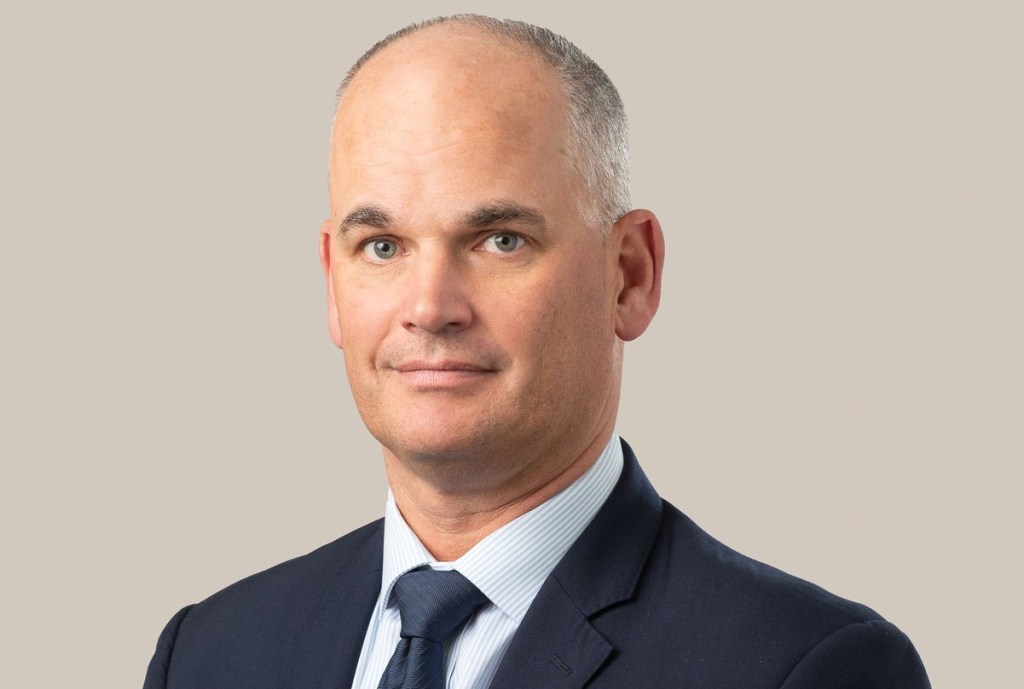Nick Griffin, a founding partner and Chief Investment Officer at Munro Partners, discusses signals from the latest earnings season and the opportunities for growth equities.

Nick Griffin is a founding partner and Chief Investment Officer at Munro Partners with $4 billion in funds under management as at 28 February 2023. He’s been managing global long / short equity mandates since 2005. Here, he talks to Forbes Australia about the need for a growth investor in your portfolio and the sectors and stocks he’s watching.
What are the new fundamentals? What’s concerning you in 2023?
I don’t think there’s any real new fundamentals to be honest. The reality is, equity markets are the same as they always were, and it’s my job to find great companies that can grow over long periods of time.
The one thing that has changed is that interest rates have gone up a lot. I think that is effectively priced into markets. Now if the interest rate move is priced in, the thing that’s not priced in is how earnings will be affected.
From our point of view, that’s the thing that concerns us this year. Can these companies that we like on a structural three-to-five-year view, still grow through what’s going to be clearly a more difficult economic environment? We feel confident that they can, but time will tell.
What have you seen from the latest earnings season reporting and is there anything a standout there?
I think the latest results season has made us feel more confident that these companies can grow through this period. There’s a saying that equity markets are not the economy.
Some of the better results, for example, companies like Nvidia, which is leveraged to AI investments, some of the companies in the energy transition space who do LNG, we’ve been heartened by some of the results that have been reported, which proves that these companies can grow through a difficult environment and secondly, how the markets reacted to those results.
That gives us confidence that this interest rate move is effectively priced in. To be fair, a lot of these companies actually did the same thing last year – reported great results – but they continued to go down. The reason why was not because people were worried about the results. The reason why was because we didn’t know what the peak of interest rates was going to be.
There’s three things you need to get to the bottom of the market. One is interest rates to peak and that’s probably happened, time for the market to price that in and that normally takes about a year and that’s probably happened to so we’re left with this final unknown, which is how much earnings is going to slow in this environment.
Explain your investing strategy.
Our investment strategy is to be your global growth investors. So that means we look at global equities with a growth focus. Our simple philosophy is that the world is constantly changing and that these big structural changes generally create these big winners. And these big winners you have to look at on a global scale. If you find those big winners, that’s the path to double-digit returns, which is what we’re aiming to target for our clients.
I would argue that equity markets generally, most of the time are not driven by macro economics. They’re actually driven by the success of these great companies, whether it’s Apple or Microsoft or Google or whether it’s Tesla or Nvidia, or even, back in the day, Walmart or Home Depot. The reality is that equity returns are actually driven by just a handful of great companies.
In Australia, you could basically have spent the last 20 years trying to work out what interest rates were going to do and what the economy was going to do, or what consumers were going to do, or you could have worked out that blood and blood plasma were going to be pretty useful in curing diseases and that everything else was a complete waste of time. As your global growth investor, our job is to go around the world and find the CSL, find the companies that are positioned in these areas of structural growth and their structural growth will link to earnings growth and earnings growth can equal share price growth.
We would be slightly more volatile than say a standard equity portfolio because growth is higher beta, but we do run an absolute return product that is slightly lower beta for people who are a little bit concerned about volatility and avoiding things like the .com crash or the Covid sell off.
Growth does do better in a low-growth world. So we prefer environments where growth is slow and interest rates are low. The past 12 months have been difficult for our strategy because interest rates went up a lot and growth accelerated a lot coming out of Covid. The 10 years prior to Covid was a much better environment for us.
While there’s probably still some twists and turns in the story here, we do think the next 10 years will end up looking like the 10 years prior to Covid. Covid effectively created a cycle where a cycle wouldn’t have otherwise existed. There were conditions in place pre-Covid that are still going to be there post-Covid, such as too much debt in the world, particularly for governments. They’ve actually marked up more debt. Populations are not growing. So one of the key drivers of GDP is more people, and we have a stagnating population globally. And thirdly, we have excess savings. So excess savings ultimately is pushing down interest rates globally over time and while they have popped up here, that’s also a good opportunity for people to put those excess savings to work and we think that will bring them down again over time. So the low growth world should come back and hopefully a low inflation with it.
What are you actively avoiding?
Right now, we’re actively avoiding cyclical stocks or cyclical exposure. While these companies are cheap, a lot of them have sort of overheated through the reopening period. Whether that’s an airline, or hotel … cars are expensive … getting a house built is expensive. So, we’re actively avoiding those cyclicals and to a certain extent avoiding industrials as well.
Where are the opportunities?
Last year was a big adjustment for growth equities. But that ultimately has cleansed valuations across a lot of good companies that we think can grow over a long period of time. We see quite a lot of opportunities developing and the first one I’d flag is in high performance computing or semiconductors. The AI revolution is coming fast.
Secondly, around decarbonisation and climate. There’s a lot of opportunities there that we think are accelerating into this environment and we still don’t really know who our climate champions are going to be. Tesla’s clearly one but it is a great area of opportunity.
Lastly, I’d probably flag is that it’s important to recognise that the Chinese are actually where we were a year ago [coming out of lockdown and border closures]. Whether it’s luxury goods or aerospace to a certain extent, selling airplanes, there is a large consumer spending boom that’s going to come from Chinese people getting on planes and leaving after being locked up for three years.
What effect would a return in the immigration numbers, people being able to move to live in Australia, if that started to get going again?
The opportunity there would be in housing, which may not have the correction that everyone thinks might happen because interest rates have popped up. It would also be good for the education sector. Having migration back would be very good for global economies in terms of the supply of labour. It would be a massive positive on lots of different levels for the world and the recession that may or may not be coming could end up just being a muddle through as we just readjust on the other side of Covid. I mean, 200,000 people left Victoria after Covid lockdowns, so it seems possible that a fair number of people might be thinking about leaving China now they can travel again.
In relation to geopolitical risk, what are you watching and why?
We would look at this mainly for the companies we invest in. So investing in a Taiwan semiconductor company, obviously it’s based in Taiwan. There’s issues between the US and China. A lot of our semiconductor investments do sit in the middle of some of these geopolitical risks.
Companies that are part of the energy transition are another area. The energy transition was already hard and then it got harder when Russia invaded Ukraine. There’s the issue of how do you decarbonise, but there’s the next problem of how do you create energy security.
All of those things influence how we think about some of those stocks, but we think about how it might affect the earnings of the companies we’re investing in.
What are your thoughts on the local and global economic situations and how dangerous is it to growth?
I think the big thing that changed over the summer was the China reopening. I personally didn’t expect them to let people leave the country as quickly as they have done. I thought that they would reopen but, we were talking to people who said they won’t hand out the passports that quickly. That’s the big change. Prior to Christmas you had a synchronized global slowdown. Now there’s not necessarily a synchronized global slowdown.
From our point of view, the only thing in the world we are worried about, like really worried about, is if you hike interest rates 400 basis points in nine months, what’s that going to do to growth? We are worried about the lag effect of interest rate rises, and what it could do to earnings growth. It could be average or it could be really bad.
In my lifetime, we have never raised interest rates that fast, to such a level. It would be naive to think that there won’t be consequences from that. But I think what’s surprising is that those consequences haven’t really come to the surface yet. It should be appearing sometime this year. It is for some companies already, but nowhere near in the size that you would expect.
It might potentially be offset by the arrival of the Chinese consumers, it’s hard to know. But as I said, we are trying to find companies that we think could grow regardless through this and that’s why we are avoiding those cyclicals or those consumer facing stocks.
What would you be suggesting as a 3-5 year plan for investors at this point in time?
If you believe that interest rates have peaked, and inflation is probably under control, which I think both of those things are true, you should be thinking about what companies you want to own on a three to five year view. This may be the bottom, it may not be the bottom, but it’s around here somewhere. As much as the recession is a concern, and it is a concern, the hardest bit of this downturn is actually already done, which is the interest rates going up, the discount rate changing. For the companies that have good balance sheets that are in good positions that are below their peaks, it’s not a bad time to be making a start on investments.
You are much closer to the end of this than the start. The good companies can grow through whatever happens next. You could start with Microsoft and work your way down. You know, a lot of these companies are 20% to 25% below where they were a year ago. Their earnings will continue to grow because of what’s going on in computing and because of a shift to the cloud and their ability to charge more for their products. You might say the same thing for Amazon, the semiconductor companies, the healthcare companies. The luxury goods companies, you can say the same thing. All of these companies are going to continue to grow their earnings over the next three to five years. The only thing that changed last year was interest rates, and that changed their multiples. Most of them should be able to grow through the slowdown that’s coming. If you truly are taking a three to five year view, you should be thinking about making a start on some of these investments.
This is an edited version of the conversation.
This article represents the views only of the interviewee and should not be regarded as the provision of advice of any nature from Forbes Australia. The article is intended to provide general information only and does not take into account your individual objectives, financial situation or needs. Past performance is not necessarily indicative of future performance. You should seek independent financial and tax advice before making any decision based on this information, the views or information expressed in this article.
Seek independent advice and consider the relevant Terms and Conditions at cmcmarkets.com.au when deciding whether to invest in CMC Markets products. CMC Markets Stockbroking Limited (ABN 69 081 002 851 AFSL No. 246381).
Look back on the week that was with hand-picked articles from Australia and around the world. Sign up to the Forbes Australia newsletter here.


